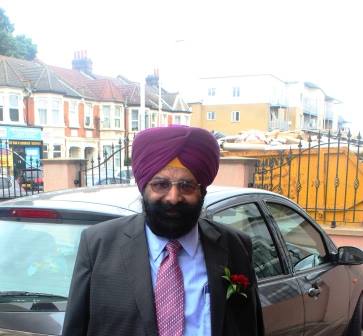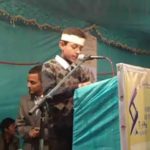Urdu domination in Punjab started by the pioneers like Jinnah and other scholars who migrated from the UP and CP areas of India. It was adopted as the national language of Pakistan.
In the subsequent years, the scholars and the Punjabi elite and professors from Lahore and other parts of Pakistan noted that although Urdu is used as the governmental language of communication, yet is not spoken by all.
PUNJABI IS A MOTHER OF URDU
The research at the Aligarh Muslim University showed that Urdu was evolved from the Punjabi language. Urdu is a name derived from the Turkish word for the Lashkar or troops. so it became the language of the invading troops. Before entering India, they have to pass and fight through the Greater Punjab and as such the knowledge of the Punjabi Language was mandatory for the advancing troops. Mirza Ghalib uses the name “Rekhta” for Urdu whereas Mir Taqi Mir uses its name as, “Urdu”
Present Urdu has more than 60% Punjabi words and OTHER 40% words are from Persian and Arabic or Hindi glossary. Arabic words entered Urdu from the Quranic Arabic. Punjabi lingo has about 40% Persian words in it. and so the Persian language has many Punjabi words interspersed in it. In the olden times, the commerce in-between Iran and Greater Punjab was on a very higher pitch. The Mughals from Babar onward lived in and around Delhi where the linking verbs of Punjabi viz; “da, de, di ” was replaced by the “ka, ke, ki” linking verbs of the Hindi speaking areas.
Punjabi is spoken by at least 70% people of Pakistan and then there are so many other languages which are very close to Punjabi and are spoken by the Pakistani Citizens. So, it is natural not to neglect Punjabi, rather promote it for the benefits of all Punjabi speaking folks.
PROMOTING PUNJABI IN PAKISTAN IS NECESSARY
There are now so many organizations in Pakistan that are doing basic research in ancient Punjabi literature and trying to save Punjabi manuscripts which are mostly written in Shahmukhi (Urdu) script. The research work of Prof Saeed Ahmad of Lahore is praise-worthy where he has tried to save many Punjabi manuscripts written by Sufi poets of Punjab and Kashmir.
After 1947, many Punjabi poets have written their books of poetry and other forms of Punjabi literature on both sides of the border. Our poet Ravinder Ravi is very famous in Pakistan as some of his books have been published in Pakistan in Urdu or Shahmukhi script. Both Amrita Pritam and Shiv Kumar Batalvi are very popular in Pakistan.
The big questions before the promoters of Punjabi in Pakistan are to select the script of writing Punjabi. Many have learned Gurmukhi script yet most of the Punjabi literature in Pakistan is envisaged and written in Shahmukhi script.
The remarkable Research work is done by a Punjabi scholar Ejaz Mahmood, who developed altogether a new script for Punjabi that incorporates all the best qualities of the modern script. It takes care of all the flaws of Punjabi writing in Urdu or Shahmukhi script as well as those we sometimes come across in Gurmukhi script.
He named Punjab as “PANIPUR”; A Land of Waters. Instead of saying Punjab Zindabaad, he writes: “Jeaey Panipur”. He wrote a complete manual of Punjabi in his newly developed script which should earn him higher university degree and his work makes a terrific Ph.D. Thesis. He is a pioneer and founder of Saanjo mission. He has started all revolutionary lingual, political, cultural and social movement to promote Punjabi and Punjabi speaking folks all over the world. He also uses terminology like “Saanjo Tore” -“Saanja Dais”, for Mutual Punjabi base.
Punjabi scholars on the Indian side should look into his work. The popularity of Punjabi language as mother tongue which Pakistani friends call it lovingly “Ma Boli” is on the mind of the Punjabi Scholars in Pakistan who don’t want their children to get an education in Urdu medium. They are aware of the psychological damage that is caused on the brain of the children when they are exposed to an alien language other than what they are born with and the one that they speak in their household.
(Mohindar Singh)



 19 Feb 2018
19 Feb 2018
 Posted by admin
Posted by admin 









